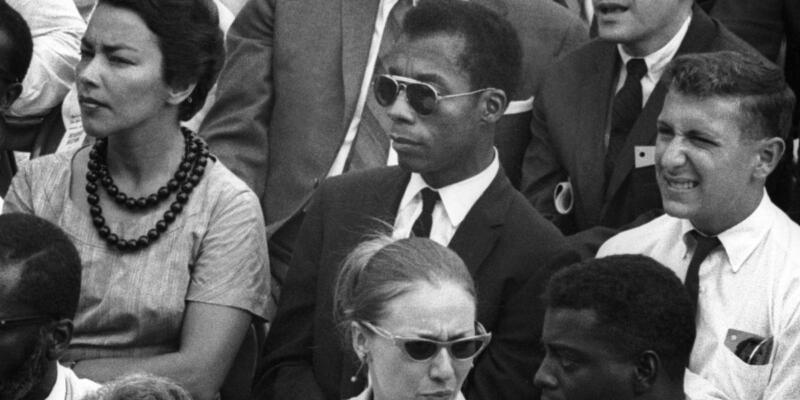
The unconventional James Baldwin documentary that we’ve been tracking on this blog over the last couple of years, from Haitian filmmaker Raoul Peck, is officially ready to be seen by an audience. It’s set to make its world premiere at the Toronto International Film Festival next month, followed by a screening date at the New York Film Festival in October.
This is obviously good news!
To be released under the title “I Am Not Your Negro,” it’s a project Peck has been working on for at least 6 years, and it’s made with the full cooperation of the Baldwin estate. Peck has described it as “a very creative documentary.” In short, the film toys with the idea that Baldwin actually wrote what was to be an ambitious book – “a masterpiece” as Peck puts it – on Medgar Evers, Malcolm X and Martin Luther King Jr., whose lives all ended in assassinations. Baldwin knew it would be a challenge, and didn’t believe it would sell, but he felt that he needed to write it. Baldwin never did write the book (Peck learned about it via letters Baldwin sent to his agent); but Peck’s “creative documentary” will imagine that he did. As the filmmaker has said: “The starting point of the film is to say – yes, he wrote it. He just didn’t bind it together, but if you go through his work, the film is there.”

All Peck has to build on are 30 pages of Baldwin’s notes for the book, and the rights to all of Baldwin’s writings, of course, since it’s a project being made with Baldwin’s estate’s blessings.
Here’s the New York Film Festival summary of the film: Haitian filmmaker Raoul Peck has taken the 30 completed pages of James Baldwin’s final, unfinished manuscript, ‘Remember This House,’ in which the author went about the painful task of remembering his three fallen friends Medgar Evers, Malcolm X, and Martin Luther King, and crafted an elegantly precise and bracing film essay. Peck’s film, about the unholy agglomeration of myths, institutionalized practices both legal and illegal, and displaced white terror that have long perpetuated the tragic state of race in America, is anchored by the presence of Baldwin himself in images and words, read beautifully by Samuel L. Jackson in hushed, burning tones.
Meanwhile, Cameron Bailey at TIFF calls it “a stunning meditation on what it means to be Black in America” that meshes Baldwin’s “lyrical rhetoric with rich archival footage of the Civil Rights and Black Power movements, and connects these historical struggles for justice and equality to the present-day movements that have taken shape in response to the killings of young African-American men including Trayvon Martin, Tamir Rice, Mike Brown, and Amir Brooks.”
Why a film on Baldwin? Peck’s response: “Because Baldwin is my life… I started reading Baldwin when I was 14 or 15, and I realized as an adult a lot of the things I was saying came from him.”
Has a definitive film/documentary on the life of James Baldwin ever been produced? I don’t believe so, which makes Peck’s project all the more significant.
No trailer or clips at this time. The above image comes from TIFF.
I will not be at TIFF this year, where the film will make its world premiere; so I won’t see it until it screens at the NYFF in October, since I live in New York.
